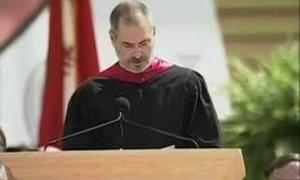John Quincy Adams believed in simplicity in oral communication
March 05, 2013
By Neil Hrab, rhetoric columnist, Vital Speeches of the Day
…One of the most remarkable peculiarities of the present time is that the principal leaders of the political parties are travelling about the country from State to State, and holding forth, like Methodist preachers, hour after hour, to assembled multitudes under the broad canopy of heaven… Besides the prime leaders of the parties, numerous subaltern officers of the Administration are summoned to the same service, and, instead of attending to the duties of their offices, rave, recite, and madden round the land.
October 1, 1840 entry in “Memoirs of John Quincy Adams: Comprising Portions of His Diary from 1795 to 1848”
Thus did an aging John Quincy Adams dismissively summarize some of the political speechifying that accompanied the 1840 presidential election.
Unlike many who have held elected office, Adams could at least claim he had done something to promote alternatives to what he might have called the “raving and reciting” school of public address. In 1810, Adams published 36 lectures on public speaking that he had delivered to students in the course of a Harvard professorship (available for free download here and here).
Adams uses the lectures to synthesize his extensive knowledge of classical oratory and rhetoric with the practical needs of his students…and the practical needs of their future audiences, too.
The needs of speakers and audiences in 1810 are not so far off from our needs in 2013. In the following excerpt from Lecture 11, for example, Adams gently reminds his students to keep a sense of proportion about them in all their public statements—even those dealing with particularly weighty matters—by keeping things simple. Call it Adams’ antidote to the “raving and reciting” syndrome.
When the cause of ages and the fate of nations hangs upon the thread of a debate, the orator may fairly consider himself, as addressing not only his immediate hearers, but the world at large; and all future times. Then it is, that, looking beyond the moment, in which he speaks, and the immediate issue of the deliberation, he makes the question of an hour a question for every age…takes the vote of unborn millions upon the debate of a little senate, and incorporates himself and his discourse with the general history of mankind.
On such occasions and at such times, the oration naturally and properly assumes a solemnity of manner and a dignity of language, commensurate with the grandeur of the cause. Then it is, that deliberate eloquence lays aside the plain attire of her daily occupation, and assumes the port and purple of the queen of the world. Yet even then she remembers, that majestic grandeur best comports with simplicity. Her crown and sceptre may blaze with the brightness of the diamond, but she must not, like the kings of the gorgeous east, be buried under a shower of barbaric pearls and gold.
A former editorial writer for Canada’s National Post, Neil Hrab made the transition from journalism to corporate communications and speechwriting in 2006. Since that time, he has written speeches for elected officials, political candidates and corporate leaders. Neil lives and works in Toronto.


